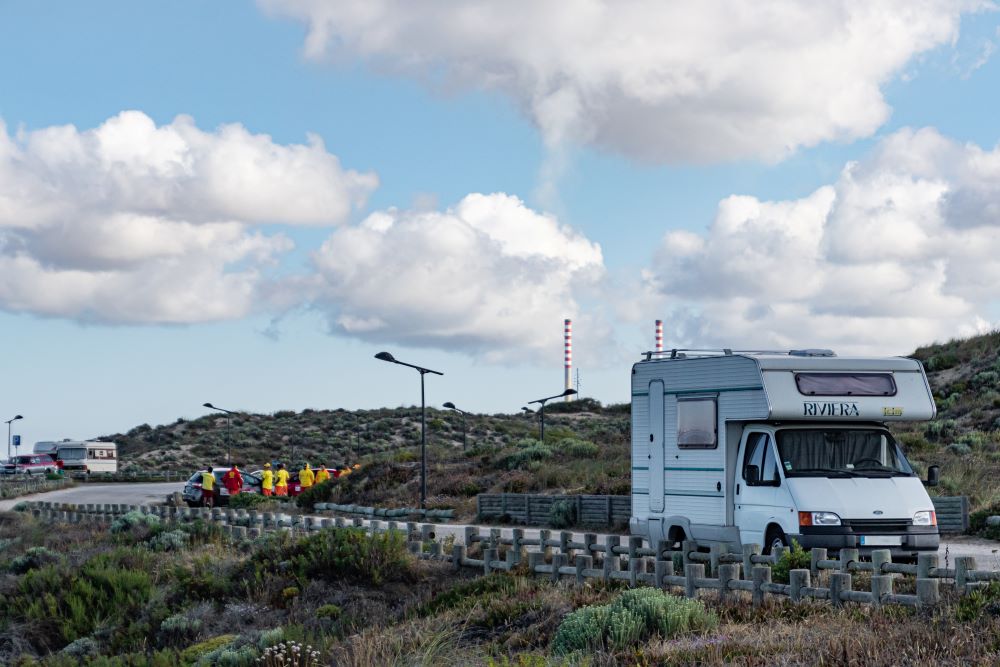MONDAY, JUNE 19, 2023
Owning a recreational vehicle (RV) can be an exciting adventure, whether you’re using it for vacations or as a full-time home. However, like any vehicle, RVs can also be involved in accidents or incidents leading to unexpected expenses, making RV insurance essential.
Can an RV Be Insured as Your Primary Vehicle?
Your RV can be insured like a typical car or motorcycle but requires special coverage. Policies designed specifically for RVs are known as RV insurance.
What Does RV Insurance Cover?
RV insurance can include the following coverages:
-
Bodily injury and property damage liability coverage may help pay for property damage or bodily injuries you cause to others while driving your RV and may help cover legal fees resulting from such an accident.
-
Collision coverage may help cover damage to your RV after an accident, regardless of who is at fault.
-
Comprehensive coverage may help cover noncollision damage to your RV, such as theft, vandalism or weather-related damage.
-
Uninsured/underinsured motorist coverage may cover you if you are in an accident with someone who doesn’t have insurance or doesn’t have enough insurance to cover the damages.
-
Personal property coverage may cover the contents of your RV, such as your furniture, electronics and other personal belongings.
-
Emergency expense coverage may cover expenses related to emergency services, such as towing or roadside assistance.
What Is Not Covered by RV Insurance?
Generally, RV insurance does not cover normal wear and tear to the vehicle. Additionally, some types of RVs may be excluded from certain coverages. Your licensed insurance agent can help determine if your vehicle qualifies for RV insurance and which coverages are recommended for your circumstances. It’s also important to note that insurance coverage may not be valid in different countries. You should check with your insurance provider to ensure proper coverage if traveling to Canada or Mexico. 
How Is RV Insurance Different From Auto Insurance?
Motorized RVs typically cannot be covered by auto insurance, even if you use it as your primary vehicle. The two types of insurance are distinct because RVs often necessitate higher liability thresholds due to their larger size, costly repairs and ability to cause more damage in a collision. Additionally, RV insurance may have the option to be suspended when the vehicle is in storage, which can save you money.
Insurance for Using an RV as a Primary Residence
If you plan on using your RV as your primary residence, an insurance provider may recommend additional coverage options, namely full-time RV insurance. This insurance may help cover you in situations that arise when the RV is parked. Full-time RV insurance coverages can be similar to those of a homeowners policy because the vehicle is acting as your home. Critically, your insurer may deny a claim if you’re using your RV as a permanent residence without having full-time RV insurance. Speak with your licensed agent about the type of RV you’re insuring and how you intend to use it.
Contact Nauertz Insurance Agency to discuss RV insurance options. We can help ensure you have the coverage you need for your specific RV.
This blog is intended for informational and educational use only. It is not exhaustive and should not be construed as legal advice. Please contact your insurance professional for further information.
No Comments
Post a Comment |
|
Required
|
|
Required (Not Displayed)
|
|
Required
|
All comments are moderated and stripped of HTML.
|
|
|
|
|
|
NOTICE: This blog and website are made available by the publisher for educational and informational purposes only.
It is not be used as a substitute for competent insurance, legal, or tax advice from a licensed professional
in your state. By using this blog site you understand that there is no broker client relationship between
you and the blog and website publisher.
|
Blog Archive
|
|